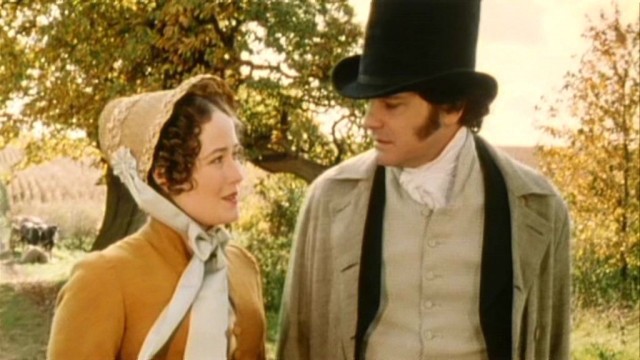“Ain’t Saying She’s A Gold-Digger”: Why We Admire Some Fs Who Seek Rich Ms & Condemn Others

Perhaps you too treat yourself to the NYT Vows section on Sundays. It is the topper on the crazy-cake that is the Style section, which, in and of itself, is unsurpassed deliciousness. (Sample article: “A $365 Foam Roller? It Exists.” It sure does, and it’s made by hand in Brooklyn!)
Anyway, this weekend, the featured bride was Southerner and professional matchmaker Sarah Smith, who firmly espouses very traditional ideas about ladies and gentlemen:
“Men fall in love with their eyes. And women fall in love between their ears.” …
“He’s either attracted to you or he’s not,” she said. “Men have a type. They know what they want. Women can grow. Women always say, ‘I didn’t love him at first, but he really grew on me.’ But you never hear a man say, ‘I thought she was very unattractive at first, but I started to like her.’”
No less an expert on the sexes than Jane Austen would disagree. One of her most memorable literary creations, Mr. Darcy, finds Elizabeth Bennet at first only “tolerable, but not handsome enough to tempt me.” Then of course Miss Bennet, with her fine eyes and independent but loving spirit, grows on him until he is consumed with passion — as consumed with passion as an introverted-to-the-point-of-emotional-constipation English aristocrat can be.
What would Austen think, though, of how open Smith is about her desire to snag a rich man?
“She had this very specific type in her head: a Southern guy who went to Georgia and was from a really good family and made more money than her — like triple,” Ms. Miotke said. “Or, she was open to the 50-year-old who thought she was adorable but he had to be really wealthy.” …
In her profile, Ms. Smith said she was seeking “an insanely successful (not successfully insane) Southern gentleman.” …
At the bottom of her profile, she wrote, “it wouldn’t hurt if he had a boat.”
We get it! Middle-managers need not apply. Debtors will be turned away at the door.
Would Austen sympathize? Or would she find Smith’s fixation a bit distasteful, even ripe for parody? It does seems somewhat unusual for someone to be so explicit about her focus on wealth. Even the women of “Sex And The City,” whose revealed preferences were for dudes with jets, or at least their own drivers, didn’t talk about money that way. Yet Smith seems unabashed.
Indeed, the gods have rewarded her with a businessman husband. One with a boat. Ask and ye shall receive, I guess.
The larger question to me is, What makes a gold-digger, anyway? How brazen does one have to be?

Readers don’t think of sweet-hearted, loyal Elizabeth Bennet as a gold-digger. Though she’s not a full on romantic, like Marianne from S&S and some other Austen characters, she does make clear that she will marry for love; indeed, to his shock, she turns down Darcy the first time he proposes. Despite his status and property, which would be very helpful not merely for her but for the sake of her entire family, he offends her, so she says no.
Once she comes to love Darcy, of course, it’s different. Even then she doesn’t marry him for his estates — though of course, she acknowledges with a smile, they help.
Viewers, likewise, don’t talk about the women of “Sex And The City” as gold-diggers most of the time, again perhaps because those women are not explicit about dating for dollars.

In several movies, though, a wide-eyed Marilyn Monroe plays a woman whose stated goal is to marry rich — How To Marry A Millionaire being the most obvious example, but others too, including the delightful Gentlemen Prefer Blondes — and yet the audience cheers for her. We want her to succeed!
We seem to have very complicated standards for whom we condemn as money-grubbing and whom we admire for her practicality. Maybe at the end of the day the only difference, really, is the subtle one of likeability: can we relate to the woman in question? If we find her sympathetic, her actions are sensible and justified. If we don’t, she’s a tramp.
Support The Billfold
The Billfold continues to exist thanks to support from our readers. Help us continue to do our work by making a monthly pledge on Patreon or a one-time-only contribution through PayPal.
Comments